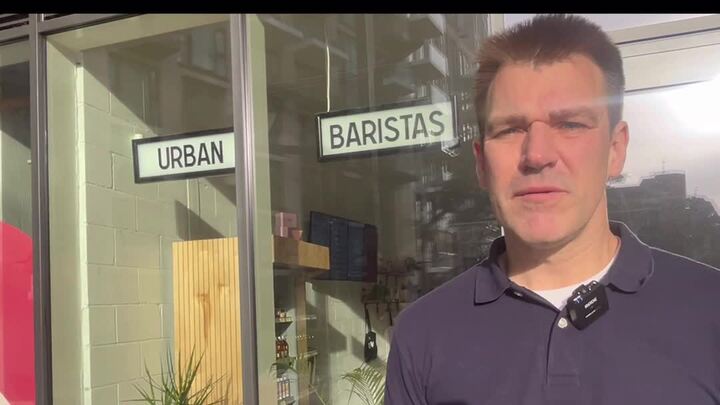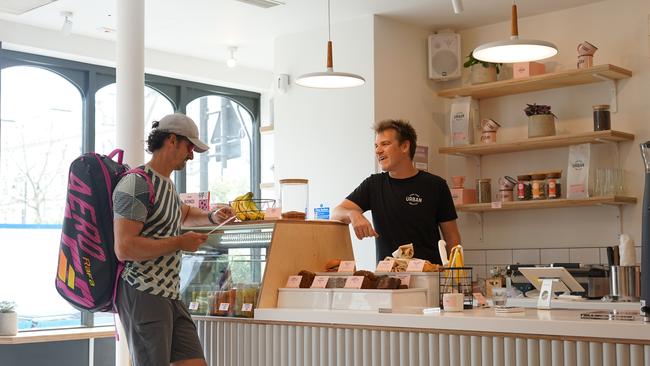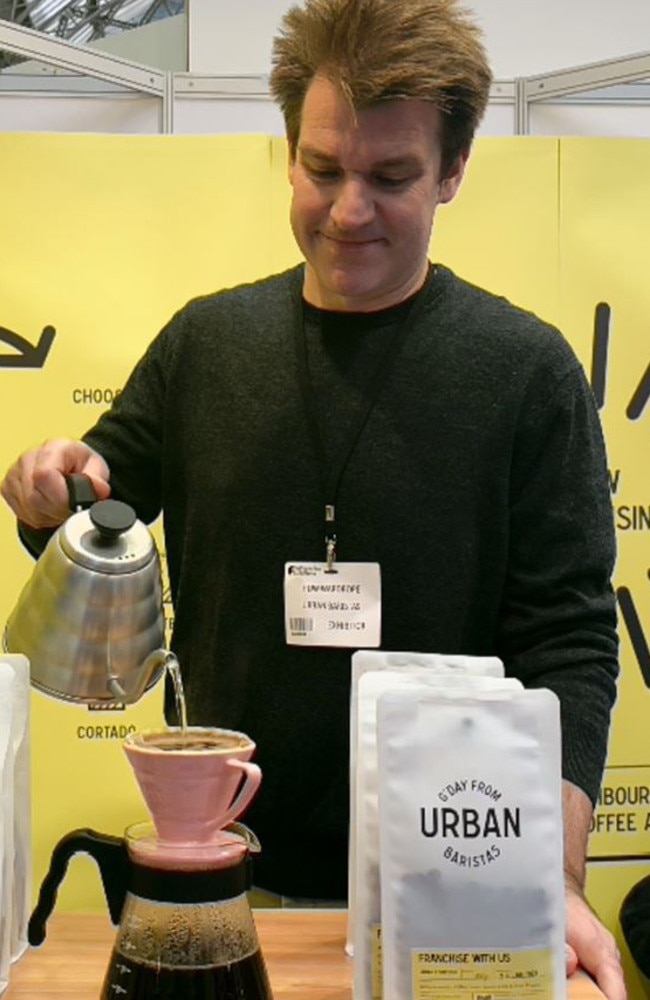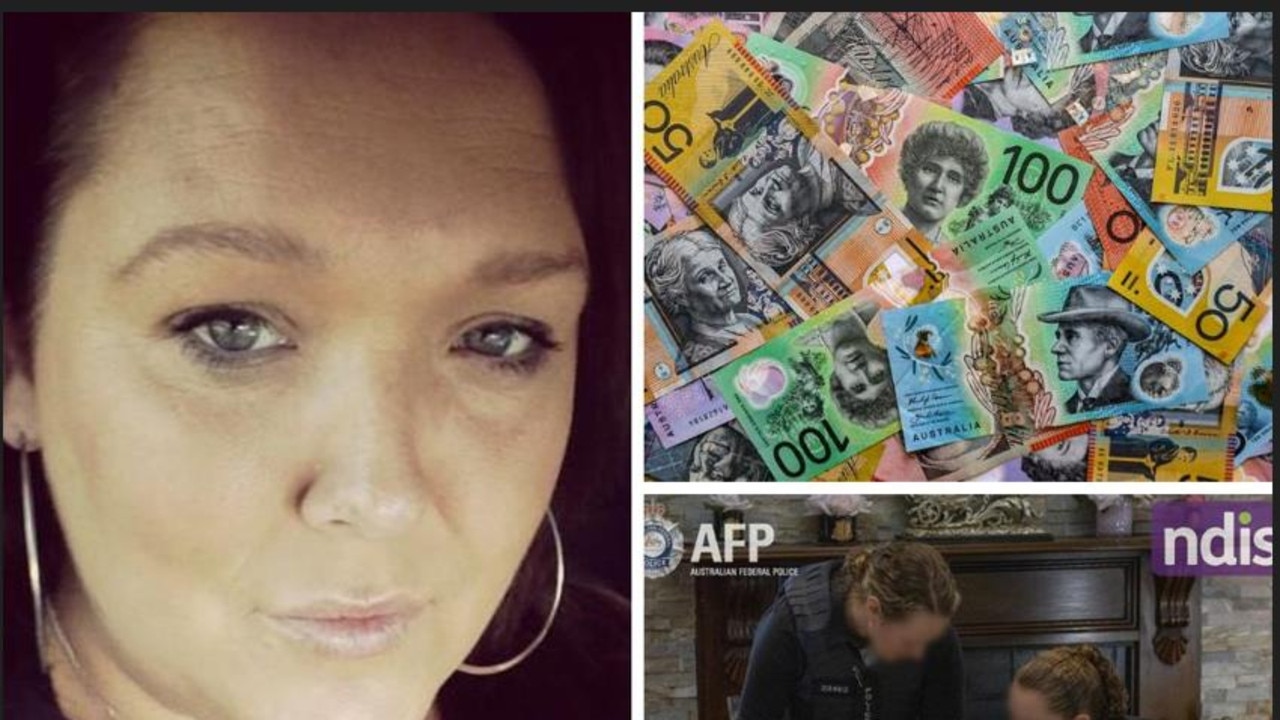Australian business owner Huw Wardrope owns 16 London cafes says it’s time to dump surcharges
Australia is well behind the UK and Europe when it comes to hitting customers with surcharges and it’s time to dump them, a successful Australian businessman argues. See the video.

Money
Don't miss out on the headlines from Money. Followed categories will be added to My News.
Pesky card payment fees are at least two years away from being scrapped in Australia but expat Huw Wardrope said it’s long overdue the nation caught up with the UK, which banned the charges six years ago.
The 44-year-old business owner runs 16 coffee shops across London and said he “wears the cost” of accepting card payments after surcharging was banned in both the UK and European Union in 2018.
“I’m a business owner … I feel for cafes, especially cafes in the UK, I know it’s a difficult business but I think it’s time (for Australia) to get with the times,” he said.
“I’ve never charged surcharges for credit or debit cards, we incur the costs.
“We’ve been cashless since about 2018 … I haven’t used cash for a long time, people are used to it now.”
In October the Albanese government announced it would implement a crackdown on unfair and excessive card charges that hit both businesses and consumers with high costs.
The government is preparing to ban debit card surcharges but when asked if surcharges will also be banned on credit cards a government spokesman did not comment.
Under existing payment arrangements it is common for customers to get hit with a surcharge when using with a debit or credit card.
The Independent Payments Forum recently said that credit card and mobile transactions cost Australians $6.4 billion a year.

Merchants incur costs when they allow customers to pay by card and consequently the charges are usually then passed onto the customer when they tap or wave their card at the checkout.
The Reserve Bank of Australia is also undertaking a review into surcharges to help save Australians money when spending at the checkout.
The RBA estimates that the different costs to accept payments vary – EFTPOS is less than 0.5 per cent, Visa and MasterCard debit between 0.5 and 1 per cent and Visa and MasterCard credit between 1 and 1.5 per cent.

In other jurisdictions including the United States and Canada credit card surcharging is allowed but there are limits.
Surcharges are also permitted in New Zealand.
Under Australian consumer law businesses are only permitted to charge a surcharge that covers the cost of the processing of the card payment and no higher than this.
For example on a coffee and croissant purchase for $15 with a surcharge of 1 per cent, that would cost the customer an extra 15 cents.
Federal treasurer Jim Chalmers recently said the government was making steps to scrap debit card surcharges.
“Consumers shouldn’t be punished for using cards or digital payments, and at the same time, small businesses shouldn’t have to pay hefty fees just to get paid themselves,” he said.
“We’re prepared to ban debit card surcharges, subject to further work by the Reserve Bank and safeguards to ensure small businesses and consumers can both benefit from lower costs.”





